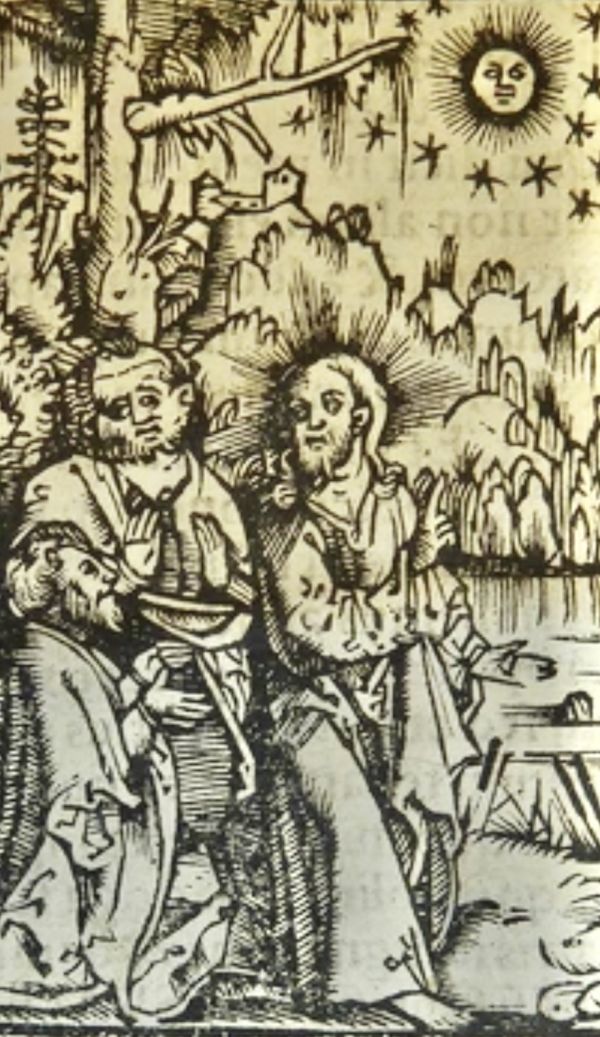The true God, nature, and authentic man
(Mk 8:27-33)
Jesus guides his intimates away from the territory of the ideology of power and the sacred centre of the official religious institution, so that they detach themselves from their own stronghold.
The territory of Caesarea Philippi was enchanting, renowned for fertility and lush pastures - an area famous for the fecundity of flocks and herds.
That sort of earthly paradise at the source of the Jordan was so humanly attractive that Alexander the Great considered it to be the home of the god Pan and the Nymphs.
Even the disciples were fascinated by the landscape and the affluent life of the inhabitants of the region; not to mention the magnificence of the palaces.
Christ asks the apostles - practically speaking - what people expected of Him. And the reminder of the context alludes to the comforts that pagan religion offered.
Moved by curiosity and eager for material fulfilment, the crowd of amazed people around the Son of God was creating a great noise, only apparent.
Now there is a turning point: the atmosphere changes, opposition increases and questions pile up; the crowd thins out and the Master finds himself increasingly alone.
While the gods were showing that they knew how to shower their worshippers with goods - and a sumptuous court life that beguiled all - what did the Lord offer?
In short, the apostles were continuing to be influenced by the propaganda of the political and religious government, which ensured prosperity.
Thus Jesus "instructed" them, so that they could overcome the blindness and crisis produced by his Cross, by the commitment required in view of the gift of self.
The Son of God is not only a continuer of the Baptist's clear-headed attitude, never inclined to compromise with the courts and opulence; nor is He one of the many restorers of the law of Moses... with the zeal of Elijah.
On this issue, in the first Christian communities there were lively distances with paganism, but there were also particular contrasts with the world of the synagogues.
Frictions of no small importance were those that arose between Jews converted to the Lord and traditionally observant Semites.
Indeed, the sacred books spoke of great figures who had left their mark on the Israel history, and were to reappear to usher in the messianic times.
There was a lack of understanding in everyone. And difficulty in being able to embrace the new proposal, which seemed to guarantee neither glory nor material goals.
Faith does not easily accord with early human impulses: it is disconcerting for the obvious views and drives.
So in the Gospel passage the Master contradicts Peter himself, whose opinion remained tied to the conformist and popular idea of «the» [v.29: «that»] expected Messiah.
The leader of the apostles must stop showing Christ which way to go «behind» (v.33) him!
Simon can go back to being a pupil; and has to stop drawing ways, by kidnapping God in the name of God…
Hence the ‘messianic secret’ imposed on those who preach it in that equivocal way (v.30).
The «Son of man» (v.31) does not assure us worldly success, nor absence of conflict. Only guarantees freedom from all ties to power, and regenerating Love.
[Thursday 6th wk. in O.T. February 20, 2025]












